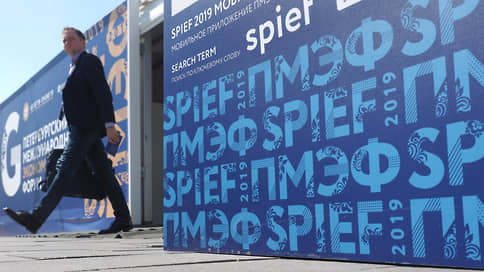Expensive hotels in St. Petersburg are preparing for a high workload for the SPIEF period
[ad_1]

The growth in the number of hotel bookings in St. Petersburg during the SPIEF allows hotels to count on high occupancy, but has not yet led to an increase in prices for accommodation. The cost of a night for forum guests is estimated at an average of 24 thousand rubles, which is 27% less than a year earlier. The main beneficiaries of SPIEF are objects of the high price segment, while three-star hotels, on the contrary, may be deprived of tourist groups who refuse to travel to St. Petersburg during the forum.
The number of bookings for accommodation in St. Petersburg during the St. Petersburg International Economic Forum (SPIEF, scheduled for June 14–17) exceeds the figure for the same period last year by 24%, according to Ostrovok.ru Business trips. Data from MTS Travel and Bronevik indicate an increase in the number of bookings by 20% year-on-year, but the figure is twice as low as in 2019. The gap there is associated with a reduction in the flow of foreign guests and earlier dates for the forum in 2019, noting that the backlog can still be reduced.
According to OneTwoTrip estimates, St. Petersburg forms 23.8% of hotel requests for the SPIEF period. Aeroclub notes that the number of bookings for accommodation by business representatives in St. Petersburg in the week of the event is one and a half times higher than in the previous one. “But there is still time before the forum, a large number of bookings are usually made before it starts,” notes Yulia Lipatova, managing director of Aeroclub.
Nikoliers points out that four- and five-star hotels in St. Petersburg this year are counting on good occupancy for the SPIEF period, up to 85-100%. Commonwealth Partnership (CMWP) partner Marina Smirnova expects average occupancy rates for local hotels in June to be 60-65% versus 60% a year earlier. Although, according to her, classical travelers are often scared away by the rising cost of accommodation during the SPIEF period. The forum “knocks out” tourist groups for at least one and a half to two weeks, Ms. Smirnova says. Kommersant’s interlocutor in the hotel market adds that in some “fours” the cost of a night on SPIEF days is two to five times higher than a regular June weekend.
According to Ostrovok.ru Business trips, the average cost of a booked night in a hotel for the SPIEF period this year is at the level of 18.3 thousand rubles, which is 1% less than last year. In the five-star segment, the average price decreased by 3% to 50.4 thousand rubles. per night, in the “three stars” – by 13%, up to 6.3 thousand rubles. And the cost of a night in an apartment increased by 13%, to 5.9 thousand rubles. year by year. In Aeroclub they are talking about a decrease in the average check in annual terms by 27%, to 24 thousand rubles. per night.
Evgenia Tuchkova, deputy director of the consulting department at Nikoliers, points out that now some hotels are deliberately holding back the cost of accommodation in order to attract more guests. Many “five”, according to her, offer prices only for forum participants and these indicators are not publicly available. “Troika”, according to the expert’s observations, in principle, rarely increase the cost of rooms for the duration of the event. Ms. Smirnova expects that this year the average monthly hotel rate in St. Petersburg will reach 18,000–20,000 rubles in June. against 17 thousand rubles. a year earlier. Hotels of the high price segment and luxury class are practically the main “beneficiaries” of such “status” events in terms of price growth, says Marina Smirnova.
The dynamics of the tariff directly depends on the load, and the rush demand for accommodation in hotels in St. Petersburg is not yet visible, said Vadim Prasov, Vice President of the Federation of Restaurateurs and Hoteliers of Russia. Alla Ruchkina, Head of Sales and Customer Relations at Continent Express, is also talking about the limited interest of businesses in participating in SPIEF. Yulia Lipatova adds that the largest number of bookings for the SPIEF period are usually made by representatives of the mining and manufacturing industries (26% of total demand), financial and consulting companies (21%) and telecommunications market participants (15%).
[ad_2]
Source link





